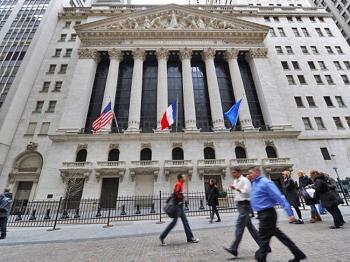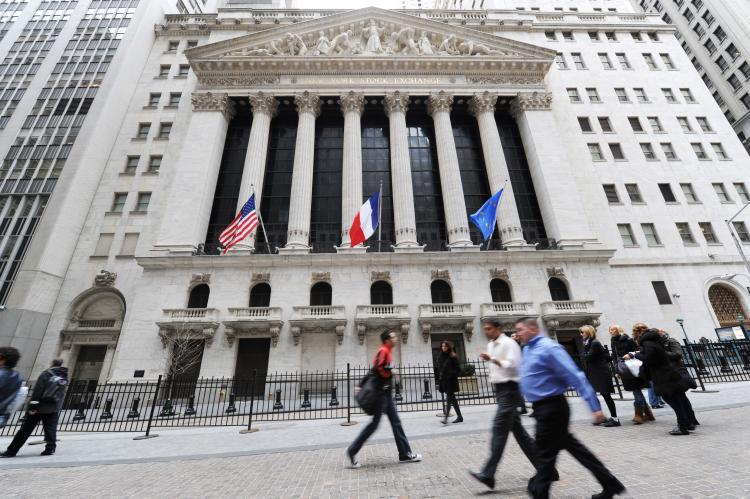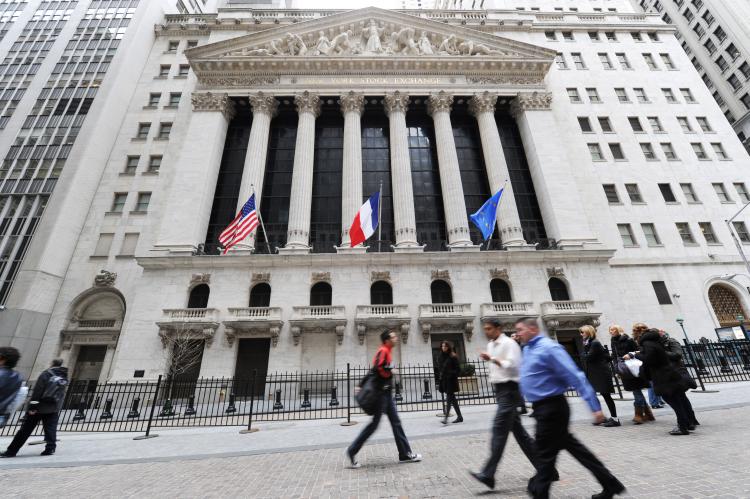The Fight Over Stock Exchanges
In the latest episode of the saga involving the New York Stock Exchange, the Nasdaq OMX Group Inc. and IntercontinentalExchange Inc. (ICE), they have dropped their combined bid to acquire the NYSE Euronext.

View of the New York Stock Exchange on April 18, 2011. Markets were down after Standard & Poor's issued a negative outlook on US debt. Stan Honda/AFP/Getty Images
|Updated:





